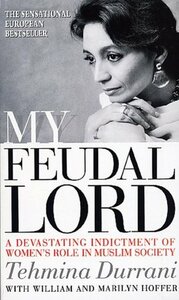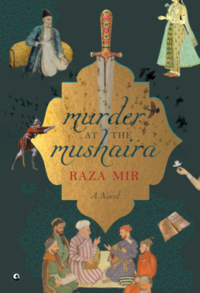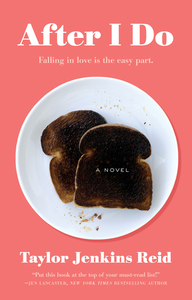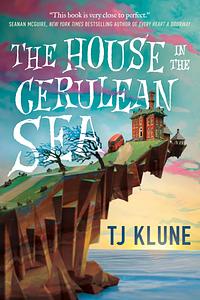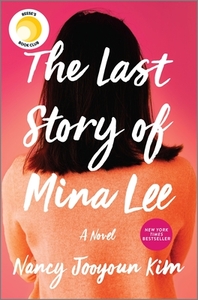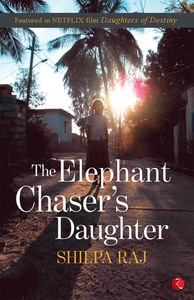You need to sign in or sign up before continuing.
Take a photo of a barcode or cover
_askthebookbug's Reviews (1.34k)
dark
emotional
sad
tense
medium-paced
• r e v i e w •
Sometimes you go in with a lot of expectations but come out with a disappointed heart. My Feudal Lord was exactly that. What intrigued me about it was the involvement of a powerful man, Ghulam Mustafa Khar who was once the Chief Minister and Governor of Punjab and was also Bhutto's dear friend. Tehmina exposes his temper, manipulative tactics, physical and mental abuse and his political journey (to a large extent) for the world to see and it truly frightened me to know that a person can carry such evilness inside him/her. What also pushed me to get a copy of this book was because of William Hoffer, who co-authored my absolute favourite book 'Not Without My Daughter'. Having such strong points, I imagined myself admiring this biography but by the end of it all, I remain confused.
Tehmina Durrani comes from an aristocratic yet dysfunctional family. With an unkind mother and an almost invisible father, she grew up being everyone's least favorite. When she married Anees, a decent young man, she was relieved to have escaped her family home but only to realise that she didn't love her husband. Khar's entry into her life only cemented the fact that he has been the one for her all along. Known as Lion of Punjab, Khar was a womanizer and a Feudal Lord, known for his fierce attitude. Against all warning, she becomes his fifth wife and troubles begin soon after. There's physical abuse followed by severe manipulation, where Khar easily pitted the family members against one another. She hasn't had an easy life but there were instances which were simply absurd for me to understand. It lacked genuineness and this was a concerning factor if found in biographies. There's a lot of politics involved in the book which often made me feel that I was reading Khar's biography instead. The book went around in circles, never seeming to end and I couldn't help but feel if Tehmina was truly really oblivious to many incidences.
I discussed this with @ashgadiyar and was relieved to see that I wasn't the only one to feel this way. Tehmina makes it almost impossible to buy her story and although my heart goes out to her for all that she had to endure, the book somehow seems too much. I would have wanted this to be more about her but all the additional details about Khar's political life only ruined the experience for me. For someone who loves reading biographies and memoirs, this was truly such a letdown.
Rating : 3.4/5.
Sometimes you go in with a lot of expectations but come out with a disappointed heart. My Feudal Lord was exactly that. What intrigued me about it was the involvement of a powerful man, Ghulam Mustafa Khar who was once the Chief Minister and Governor of Punjab and was also Bhutto's dear friend. Tehmina exposes his temper, manipulative tactics, physical and mental abuse and his political journey (to a large extent) for the world to see and it truly frightened me to know that a person can carry such evilness inside him/her. What also pushed me to get a copy of this book was because of William Hoffer, who co-authored my absolute favourite book 'Not Without My Daughter'. Having such strong points, I imagined myself admiring this biography but by the end of it all, I remain confused.
Tehmina Durrani comes from an aristocratic yet dysfunctional family. With an unkind mother and an almost invisible father, she grew up being everyone's least favorite. When she married Anees, a decent young man, she was relieved to have escaped her family home but only to realise that she didn't love her husband. Khar's entry into her life only cemented the fact that he has been the one for her all along. Known as Lion of Punjab, Khar was a womanizer and a Feudal Lord, known for his fierce attitude. Against all warning, she becomes his fifth wife and troubles begin soon after. There's physical abuse followed by severe manipulation, where Khar easily pitted the family members against one another. She hasn't had an easy life but there were instances which were simply absurd for me to understand. It lacked genuineness and this was a concerning factor if found in biographies. There's a lot of politics involved in the book which often made me feel that I was reading Khar's biography instead. The book went around in circles, never seeming to end and I couldn't help but feel if Tehmina was truly really oblivious to many incidences.
I discussed this with @ashgadiyar and was relieved to see that I wasn't the only one to feel this way. Tehmina makes it almost impossible to buy her story and although my heart goes out to her for all that she had to endure, the book somehow seems too much. I would have wanted this to be more about her but all the additional details about Khar's political life only ruined the experience for me. For someone who loves reading biographies and memoirs, this was truly such a letdown.
Rating : 3.4/5.
Graphic: Domestic abuse
adventurous
tense
medium-paced
Plot or Character Driven:
A mix
Strong character development:
Complicated
Loveable characters:
Complicated
Diverse cast of characters:
Yes
• r e v i e w •
The Day After Tomorrow is the sort of book that draws you in and imprints itself onto your mind. Although I was initially sceptical about having to read 600 pages, the uncertainty quickly disappeared. Published in 1994, this book is unputdownable right from the start. It pumps you with adrenaline, pushing you to unearth secrets that binds the book together. Paul Osborn, the protagonist witnesses his father's murder in 1966 by a man and never forgives/forgets his face. Almost thirty years later, in a café in Paris he sees the same face opposite to him and loses his calm. Osborn, who struggled with numerous questions about his father's death all his life finally finds a chance to confront the killer. What initially seems like a simple task, turns out to be something sinister leading back to WWII. Osborn with the help of McVey, a renowned American homicide detective sets out to learn the truth behind a series of murders that they uncover.
Folsom's writing is surprisingly approachable, making it easier for the readers to stay connected to the story. The first half gets over effortlessly, making it impossible for the audience to not think about the story at almost all times. Osborn's discovery of the killer and his pursuit of seeking revenge spins out of control, leading him into a deeper problem much like a quick sand. With every secret, he feels more lost and the realisation of a presence of something larger and darker looms over his head. McVey, on the other hand accidentally learns of Osborn while investigating a range of murders spread across couple of countries. I enjoyed McVey's character much more than anyone else's. Although the story gets a bit dramatic in the second-half, it somehow manages to stay in the right track. I wouldn't want to give away many details but this big book ultimately became one of my favourite thrillers. I wouldn't have bought it if it wasn't for @s.n.avinash but now that I have, it turned out to be such a brilliant read.
4.5/5.
The Day After Tomorrow is the sort of book that draws you in and imprints itself onto your mind. Although I was initially sceptical about having to read 600 pages, the uncertainty quickly disappeared. Published in 1994, this book is unputdownable right from the start. It pumps you with adrenaline, pushing you to unearth secrets that binds the book together. Paul Osborn, the protagonist witnesses his father's murder in 1966 by a man and never forgives/forgets his face. Almost thirty years later, in a café in Paris he sees the same face opposite to him and loses his calm. Osborn, who struggled with numerous questions about his father's death all his life finally finds a chance to confront the killer. What initially seems like a simple task, turns out to be something sinister leading back to WWII. Osborn with the help of McVey, a renowned American homicide detective sets out to learn the truth behind a series of murders that they uncover.
Folsom's writing is surprisingly approachable, making it easier for the readers to stay connected to the story. The first half gets over effortlessly, making it impossible for the audience to not think about the story at almost all times. Osborn's discovery of the killer and his pursuit of seeking revenge spins out of control, leading him into a deeper problem much like a quick sand. With every secret, he feels more lost and the realisation of a presence of something larger and darker looms over his head. McVey, on the other hand accidentally learns of Osborn while investigating a range of murders spread across couple of countries. I enjoyed McVey's character much more than anyone else's. Although the story gets a bit dramatic in the second-half, it somehow manages to stay in the right track. I wouldn't want to give away many details but this big book ultimately became one of my favourite thrillers. I wouldn't have bought it if it wasn't for @s.n.avinash but now that I have, it turned out to be such a brilliant read.
4.5/5.
inspiring
slow-paced
• r e v i e w •
Murder at the Mushaira is set during the pre-independence era, at a critical time when Indian soldiers began revolting against the British. So it comes as no surprise that Raza Mir writes in a rarefied manner, making it appealing to only a particular set of people. That and his ability to bring back few significant characters to life like Mirza Ghalib, the renowned poet whose work is still considered one of the best in the literary world scores brownie points. But my interest in this book ends just there. Although, Mir focuses on patriotism and paints a vivid picture of those who lived back in the days when Mushairas were conducted in palaces and mansions, a life when commoners fought for independence in their own little ways etc, this book is mainly supposed to be a murder mystery and with it comes a certain expectation of keeping the readers satisfied with how the plot unfolds. The motive, the act and the grand conclusion demands a satisfactory result which I found missing.
A poet is murdered at a Mushaira and our witty Mirza Ghalib is asked to assist in finding the murderer by Kirorimal, an investigating officer. Mirza is old but the twinkle in his eye and the mischievous smile playing on his lips reminds people of the handsome self he once was. But what appears to be a simple murder mystery proves to be a tangled one, much like a puzzle that refuses to shed clues. With the involvement of the officers working for the Crown, rebellious Indians who form a secret network to free their country and suspects who are quick to point fingers at others; Murder at the Mushaira takes us on a rather amusing ride. For someone like me who has read a fair share of murder mysteries, this book failed to make a mark. Albeit Mir impresses readers with his writing flair and the background of the story, it didn't quite live upto my expectations. Much of the story felt incessantly dragged, making me want to abandon it at more than one instance. My review is what one might term as an unpopular opinion but murder mysteries to me are either a hit or miss and this one falls under the latter part.
3.4/5.
Murder at the Mushaira is set during the pre-independence era, at a critical time when Indian soldiers began revolting against the British. So it comes as no surprise that Raza Mir writes in a rarefied manner, making it appealing to only a particular set of people. That and his ability to bring back few significant characters to life like Mirza Ghalib, the renowned poet whose work is still considered one of the best in the literary world scores brownie points. But my interest in this book ends just there. Although, Mir focuses on patriotism and paints a vivid picture of those who lived back in the days when Mushairas were conducted in palaces and mansions, a life when commoners fought for independence in their own little ways etc, this book is mainly supposed to be a murder mystery and with it comes a certain expectation of keeping the readers satisfied with how the plot unfolds. The motive, the act and the grand conclusion demands a satisfactory result which I found missing.
A poet is murdered at a Mushaira and our witty Mirza Ghalib is asked to assist in finding the murderer by Kirorimal, an investigating officer. Mirza is old but the twinkle in his eye and the mischievous smile playing on his lips reminds people of the handsome self he once was. But what appears to be a simple murder mystery proves to be a tangled one, much like a puzzle that refuses to shed clues. With the involvement of the officers working for the Crown, rebellious Indians who form a secret network to free their country and suspects who are quick to point fingers at others; Murder at the Mushaira takes us on a rather amusing ride. For someone like me who has read a fair share of murder mysteries, this book failed to make a mark. Albeit Mir impresses readers with his writing flair and the background of the story, it didn't quite live upto my expectations. Much of the story felt incessantly dragged, making me want to abandon it at more than one instance. My review is what one might term as an unpopular opinion but murder mysteries to me are either a hit or miss and this one falls under the latter part.
3.4/5.
dark
mysterious
fast-paced
Plot or Character Driven:
Plot
Strong character development:
Complicated
Loveable characters:
Complicated
Diverse cast of characters:
Complicated
emotional
hopeful
lighthearted
reflective
fast-paced
Plot or Character Driven:
Character
Strong character development:
Yes
Loveable characters:
Yes
Diverse cast of characters:
Yes
Flaws of characters a main focus:
No
• r e v i e w •
"Ryan and I are two people who used to be in love. What a beautiful thing to have been. What a sad thing to be." - Taylor Jenkins Reid
After I Do is a simple story of a troubled marriage. They are tricky things, marriages. While some last decades, few crash and burn within a few years. You go in with love but sometimes come out empty-handed. Lauren and Ryan fell in love at 19 and marry years later. With marriage comes monotony and stability. They know each other better than they know themselves. After a fight one day, Lauren realises that she doesn't love her husband anymore. It wasn't an overnight process but months of bickering and irritation. Ryan too, admits to not loving his wife. They decide to live apart for a year without formally separating.
Narrated by Lauren, After I Do is an honest take on how marriages lose their shine over time. It's not necessarily a bad thing but rekindling any relationship requires dedication and communication. This novel is exactly that. That one year of separation pushes the two to ponder over their relationship, to put in efforts to make it work and to reflect on their actions. Much like her other book 'Evidence of the Affair', this one too has small chapters, which makes it incredibly fast-paced and given the simplicity of the story, it's hard to put it down. This story gives hope and assurance that love sometimes fades but it's never too late to find and work on it.
4.3/5.
(Note : Taylor's advice for writers in the second slide)
"Ryan and I are two people who used to be in love. What a beautiful thing to have been. What a sad thing to be." - Taylor Jenkins Reid
After I Do is a simple story of a troubled marriage. They are tricky things, marriages. While some last decades, few crash and burn within a few years. You go in with love but sometimes come out empty-handed. Lauren and Ryan fell in love at 19 and marry years later. With marriage comes monotony and stability. They know each other better than they know themselves. After a fight one day, Lauren realises that she doesn't love her husband anymore. It wasn't an overnight process but months of bickering and irritation. Ryan too, admits to not loving his wife. They decide to live apart for a year without formally separating.
Narrated by Lauren, After I Do is an honest take on how marriages lose their shine over time. It's not necessarily a bad thing but rekindling any relationship requires dedication and communication. This novel is exactly that. That one year of separation pushes the two to ponder over their relationship, to put in efforts to make it work and to reflect on their actions. Much like her other book 'Evidence of the Affair', this one too has small chapters, which makes it incredibly fast-paced and given the simplicity of the story, it's hard to put it down. This story gives hope and assurance that love sometimes fades but it's never too late to find and work on it.
4.3/5.
(Note : Taylor's advice for writers in the second slide)
dark
mysterious
fast-paced
Plot or Character Driven:
Plot
Strong character development:
Yes
Loveable characters:
Complicated
Diverse cast of characters:
Yes
Flaws of characters a main focus:
N/A
• r e c o m m e n d a t i o n •
Having read The Disappearance of Sally Sequeira previously, I thought I knew what to expect before diving into the world of Janardhan Maity but boy, was I surprised! In the previous book, the narrator Prakash introduced me to the mysterious and enigmatic world of Maity but I was curious about how the two ended up meeting in the first place. Penumbra tells us how and under what circumstances did they meet and later went on to become good friends. @bhaskarchattopadhyay is a simple writer but one who makes the readers lose sense of time and place. Penumbra is a classic whodunnit novel, with a murder taking place in an isolated bungalow forcing the guests to be couped up with the murderer. The tensions are palpable, people snapping at each other while Mr Maity gets down to investigate the situation. What follows next is brilliant.
Post receiving a letter from his long-lost uncle, inviting him to attend his 60th birthday party, Prakash decides to pay a visit to know more about his mother who died at childbirth. Upon entering, he becomes acquainted with a varied set of people. It is here that he meets Maity whom he first considers to be odd but later turns to rely on him heavily. Before he can truly unwind, a murder occurs scaring the living daylights out of him. But things turn overtly complicated when there's a second murder. The atmosphere outside doesn't allow the guests to venture out, making the entire scenario very sinister. As the guests try to figure out who the murderer can possibly be, Prakash does his own research and works with Maity. Maity doesn't disclose much of his investigation but welcomes Prakash under his wing from where he observes people and their motives. It's worth noticing how Maity is a mix of Holmes and Poirot but is not overly/completely like them. This is what makes him utterly special where he snugly fits within the Indian literary world. One can guess who the murderer is or even try as much to contemplate the motive but it eventually fails when Maity reveals the two aspects himself. A true murder mystery is bound to be fast-paced and extremely thought provoking. This was both.
4.7/5.
Having read The Disappearance of Sally Sequeira previously, I thought I knew what to expect before diving into the world of Janardhan Maity but boy, was I surprised! In the previous book, the narrator Prakash introduced me to the mysterious and enigmatic world of Maity but I was curious about how the two ended up meeting in the first place. Penumbra tells us how and under what circumstances did they meet and later went on to become good friends. @bhaskarchattopadhyay is a simple writer but one who makes the readers lose sense of time and place. Penumbra is a classic whodunnit novel, with a murder taking place in an isolated bungalow forcing the guests to be couped up with the murderer. The tensions are palpable, people snapping at each other while Mr Maity gets down to investigate the situation. What follows next is brilliant.
Post receiving a letter from his long-lost uncle, inviting him to attend his 60th birthday party, Prakash decides to pay a visit to know more about his mother who died at childbirth. Upon entering, he becomes acquainted with a varied set of people. It is here that he meets Maity whom he first considers to be odd but later turns to rely on him heavily. Before he can truly unwind, a murder occurs scaring the living daylights out of him. But things turn overtly complicated when there's a second murder. The atmosphere outside doesn't allow the guests to venture out, making the entire scenario very sinister. As the guests try to figure out who the murderer can possibly be, Prakash does his own research and works with Maity. Maity doesn't disclose much of his investigation but welcomes Prakash under his wing from where he observes people and their motives. It's worth noticing how Maity is a mix of Holmes and Poirot but is not overly/completely like them. This is what makes him utterly special where he snugly fits within the Indian literary world. One can guess who the murderer is or even try as much to contemplate the motive but it eventually fails when Maity reveals the two aspects himself. A true murder mystery is bound to be fast-paced and extremely thought provoking. This was both.
4.7/5.
adventurous
funny
hopeful
lighthearted
fast-paced
Strong character development:
Yes
Loveable characters:
Yes
Diverse cast of characters:
Yes
Flaws of characters a main focus:
N/A
• r e c o m m e n d a t i o n •
"Hate is loud, but I think you'll learn it's because it's only a few people shouting, desperate to be heard. You might not ever be able to change their minds, but so long as your remember you're not alone, you will overcome." - TJ Klune
There are few books that fills you up with warmth and sunshine making you feel all fuzzy and gooey. The House in the Cerulean Sea is one such novel. Now more than ever, we need goodness around us. Someone to tell us not to lose hope and to keep believing in ourselves irrespective of what others have to say. TJ Klune, through the characters does exactly that. He makes you want to love and be loved, to accept oneself without any judgement and this is what makes this book a winner. The protagonist, Linus Baker is full of self-doubt and is accepting to settle in a loveless life because he feels unworthy of it. But little does he know that he'll meet someone who forces him to open his eyes for the very first time. Surrounded by blinding beauty in the Cerulean Sea, Linus finds his way back to life.
Baker is a caseworker in Department in Charge of Magical Youths (DICOMY) and lives a mundane life. He detests his weight, his inability to make friends and dreams of seeing an ocean/sea. When given an unexpected task of visiting an orphanage to evaluate it's condition and that of the magical children, he is dazed for being selected for the job. Being a stiff man and a stickler of rules, Linus is overwhelmed by the children he meets at the orphanage. He gradually unwinds and enjoys the little things that the island and its people have to offer. And then there's the master of the orphanage who thaws through Baker's heart. Arthur is unlike anyone Baker has ever met and is drawn to him like a magnet. This part is what I enjoyed the most. Arthur making Baker see how precious he really is. All sense of doubt and uncertainty vanishes from Baker's mind.
There's so much to love about this story. It oozes positivity and hope. The story and it's characters are deliciously warm. Please do read it.
I read this for @btp.bookclub
5/5.
"Hate is loud, but I think you'll learn it's because it's only a few people shouting, desperate to be heard. You might not ever be able to change their minds, but so long as your remember you're not alone, you will overcome." - TJ Klune
There are few books that fills you up with warmth and sunshine making you feel all fuzzy and gooey. The House in the Cerulean Sea is one such novel. Now more than ever, we need goodness around us. Someone to tell us not to lose hope and to keep believing in ourselves irrespective of what others have to say. TJ Klune, through the characters does exactly that. He makes you want to love and be loved, to accept oneself without any judgement and this is what makes this book a winner. The protagonist, Linus Baker is full of self-doubt and is accepting to settle in a loveless life because he feels unworthy of it. But little does he know that he'll meet someone who forces him to open his eyes for the very first time. Surrounded by blinding beauty in the Cerulean Sea, Linus finds his way back to life.
Baker is a caseworker in Department in Charge of Magical Youths (DICOMY) and lives a mundane life. He detests his weight, his inability to make friends and dreams of seeing an ocean/sea. When given an unexpected task of visiting an orphanage to evaluate it's condition and that of the magical children, he is dazed for being selected for the job. Being a stiff man and a stickler of rules, Linus is overwhelmed by the children he meets at the orphanage. He gradually unwinds and enjoys the little things that the island and its people have to offer. And then there's the master of the orphanage who thaws through Baker's heart. Arthur is unlike anyone Baker has ever met and is drawn to him like a magnet. This part is what I enjoyed the most. Arthur making Baker see how precious he really is. All sense of doubt and uncertainty vanishes from Baker's mind.
There's so much to love about this story. It oozes positivity and hope. The story and it's characters are deliciously warm. Please do read it.
I read this for @btp.bookclub
5/5.
emotional
hopeful
reflective
sad
medium-paced
Strong character development:
Complicated
Loveable characters:
Complicated
Diverse cast of characters:
Yes
Flaws of characters a main focus:
Yes
Moderate: Drug abuse, Self harm
emotional
reflective
medium-paced
Strong character development:
Complicated
Loveable characters:
Complicated
Diverse cast of characters:
Complicated
Flaws of characters a main focus:
N/A
• r e v i e w •
"And the whole world told women every day, If you are alone, you are no one. A woman alone is no one at all."
"But history always rose to the surface. Among the wreckage, the dead floated to the top." - Nancy Jooyoun Kim.
You can never truly know someone. Humans are capable of playing different roles, carrying it out carefully without them never having to collide. The Last Story of Mina Lee is one such tale of a mother-daughter duo, both walking on eggshells and painting different images of each other without ever realising their true nature. To Margot, her mother's life appears to be tepid, one that revolves only around work. Growing up as a Korean in America, Margot often rebelled against her mother to the extent of not fully learning Korean. Mina on the other hand, knows the struggle of being an immigrant and wishes her daughter to live a life free of poverty. The two never get along too well and the guilt overwhelms Margot when she finds her mother dead in the middle of their living room. What appears to be a natural death has deeper secrets that unfurls with each chapter.
Set in Koreatown, Los Angeles, Kim takes us on a journey of women who struggle to stay afloat in a hostile environment. With each clue, Margot discovers a different side of her mother but the grief of not being able to talk to her leaves her crumpled. Mina's life was one full of hurdles but what Margot never realised that there was love in it too. This revelation shocks her. To imagine her mother in the arms of a man. As Margot sets about uncovering the truth behind her mother's death, Kim walks us through Mina's past, one that is full of secrets. Kim writes about how difficult lives were for women without men back in the late 80s, of racism and lack of safety. A seemingly normal story about a woman's history turns into a murder mystery as well. This was where the book lacked luster for me. It almost felt like Kim decided to wrap up the story in a hurry. Mina's story was one that possessed potential but unfortunately didn't quite work out in the end. Albeit I wouldn't recommend this, it is in no way a terrible read.
4.1/5.
"And the whole world told women every day, If you are alone, you are no one. A woman alone is no one at all."
"But history always rose to the surface. Among the wreckage, the dead floated to the top." - Nancy Jooyoun Kim.
You can never truly know someone. Humans are capable of playing different roles, carrying it out carefully without them never having to collide. The Last Story of Mina Lee is one such tale of a mother-daughter duo, both walking on eggshells and painting different images of each other without ever realising their true nature. To Margot, her mother's life appears to be tepid, one that revolves only around work. Growing up as a Korean in America, Margot often rebelled against her mother to the extent of not fully learning Korean. Mina on the other hand, knows the struggle of being an immigrant and wishes her daughter to live a life free of poverty. The two never get along too well and the guilt overwhelms Margot when she finds her mother dead in the middle of their living room. What appears to be a natural death has deeper secrets that unfurls with each chapter.
Set in Koreatown, Los Angeles, Kim takes us on a journey of women who struggle to stay afloat in a hostile environment. With each clue, Margot discovers a different side of her mother but the grief of not being able to talk to her leaves her crumpled. Mina's life was one full of hurdles but what Margot never realised that there was love in it too. This revelation shocks her. To imagine her mother in the arms of a man. As Margot sets about uncovering the truth behind her mother's death, Kim walks us through Mina's past, one that is full of secrets. Kim writes about how difficult lives were for women without men back in the late 80s, of racism and lack of safety. A seemingly normal story about a woman's history turns into a murder mystery as well. This was where the book lacked luster for me. It almost felt like Kim decided to wrap up the story in a hurry. Mina's story was one that possessed potential but unfortunately didn't quite work out in the end. Albeit I wouldn't recommend this, it is in no way a terrible read.
4.1/5.
dark
emotional
hopeful
sad
fast-paced
• r e c o m m e n d a t i o n •
This is the story of a daughter who would have perhaps be smothered to death upon her birth if her grandmother hadn't intervened. Of a daughter who's mother is a house maid and father who chases elephants. Of a daughter who lost her sister due to unforeseen events. Of a daughter whose destiny changed because of a single man.
Shilpa Anthony Raj, born in Thattaguppe comes from a turbulent family. In a village where girls are considered to be a burden and are married off the minute they attain puberty, Shilpa escapes her fate. Shanti Bhavan, an institute set up by Dr Abraham George decides to select one child from each house and gift them with free schooling. Shilpa's father, who once wanted her dead now fights to get her admitted to the school. With all kinds of rumours running across the village about how these strangers are planning on selling the children's body parts, it was a courageous move on the parents to send their children. This, happened to be a turning point in Shilpa's life, one that ultimately saved her from leading a submissive life.
Shilpa and many other children who grew up in Shanti Bhavan grew up with two homes. Back in the village, they were admired and envied but in Shanti Bhavan, the children were brought up equally. Shilpa and others struggle to strike a balance between the two lives. Coming from a home where violence was a daily occurrence, these kids miraculously walked a different path. Shilpa's life is one of grief and uncertainty when she goes to the village and when her sister dies at the age of 14, she carries the guilt of not saving her till date. Through her, I came to admire the man behind this initiative. To educate and improve the lives of hundreds of poorest of the poor families without taking a penny from them is simply marvelous.
This memoir is painfully honest and to think that a 20 year old would speak so honestly about her life and that of her family is truly commendable. I highly recommend this.
P.S. Daughters of Destiny in Netflix is a documentary series about Shanti Bhavan. You can see Shilpa narrating few lines from this memoir.
This is the story of a daughter who would have perhaps be smothered to death upon her birth if her grandmother hadn't intervened. Of a daughter who's mother is a house maid and father who chases elephants. Of a daughter who lost her sister due to unforeseen events. Of a daughter whose destiny changed because of a single man.
Shilpa Anthony Raj, born in Thattaguppe comes from a turbulent family. In a village where girls are considered to be a burden and are married off the minute they attain puberty, Shilpa escapes her fate. Shanti Bhavan, an institute set up by Dr Abraham George decides to select one child from each house and gift them with free schooling. Shilpa's father, who once wanted her dead now fights to get her admitted to the school. With all kinds of rumours running across the village about how these strangers are planning on selling the children's body parts, it was a courageous move on the parents to send their children. This, happened to be a turning point in Shilpa's life, one that ultimately saved her from leading a submissive life.
Shilpa and many other children who grew up in Shanti Bhavan grew up with two homes. Back in the village, they were admired and envied but in Shanti Bhavan, the children were brought up equally. Shilpa and others struggle to strike a balance between the two lives. Coming from a home where violence was a daily occurrence, these kids miraculously walked a different path. Shilpa's life is one of grief and uncertainty when she goes to the village and when her sister dies at the age of 14, she carries the guilt of not saving her till date. Through her, I came to admire the man behind this initiative. To educate and improve the lives of hundreds of poorest of the poor families without taking a penny from them is simply marvelous.
This memoir is painfully honest and to think that a 20 year old would speak so honestly about her life and that of her family is truly commendable. I highly recommend this.
P.S. Daughters of Destiny in Netflix is a documentary series about Shanti Bhavan. You can see Shilpa narrating few lines from this memoir.
Moderate: Alcoholism, Child abuse, Death
